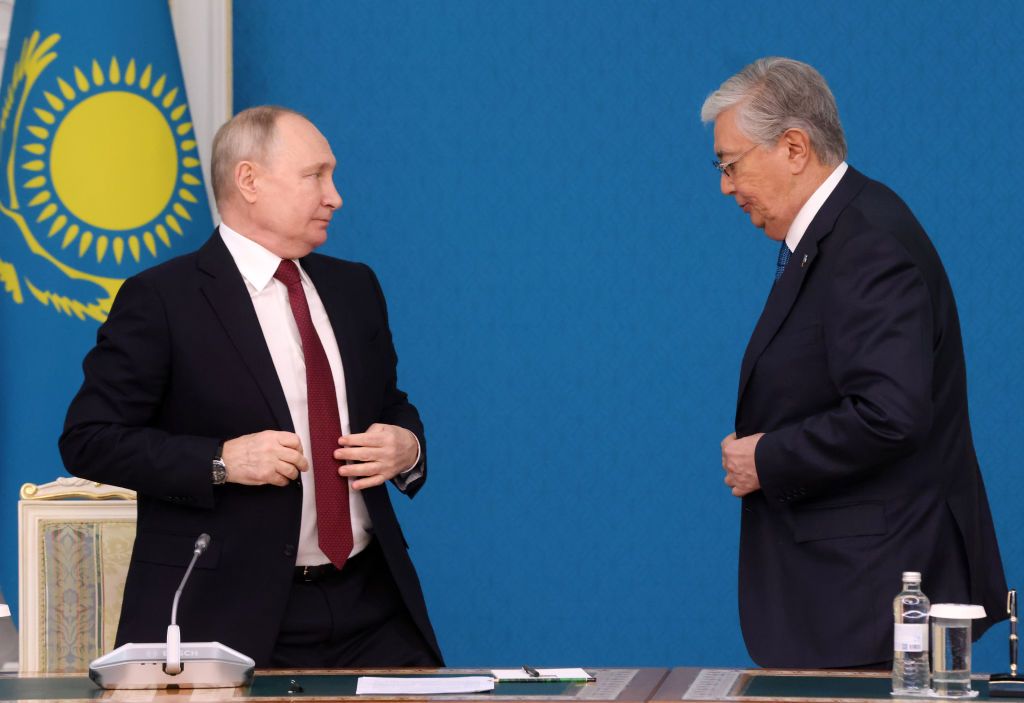Russia has reportedly asked Kazakhstan to be prepared to supply 100,000 tons of gasoline in case of shortages caused by increased Ukrainian drone attacks on Russian oil refineries. While sources claim that an agreement has already been reached, an advisor to Kazakhstan’s energy minister denied that Russia made such a request. The uptick in attacks on Russian oil infrastructure by Ukraine has led to disruptions in refinery capacity, prompting Russia to impose a six-month gasoline export ban starting on March 1. The United States has cautioned Ukraine against targeting Russian refineries, expressing concerns over potential global oil price increases and further retaliation.
Despite facing gasoline shortages, Russia continues to supply countries within the Moscow-led Eurasian economic union, including Kazakhstan. Kazakhstan, in turn, has restricted fuel exports until the end of 2024 due to its own chronic shortages. This move further highlights the reliance on fossil fuels in the Russian economy and the significant role it plays in funding the Kremlin’s military operations. The increased importance of the Chinese yuan in Russia’s economy has also been noted, as trade in yuan in Russia’s foreign exchange market reached record highs, demonstrating a shift away from Western financial systems.
The ongoing conflict between Russia and Ukraine has led to a strategic targeting of energy infrastructure by both parties. Ukraine asserts that these actions are legitimate military strategies and has defended its use of drones in attacking Russian refineries. Ukrainian President Zelensky emphasized that no one can restrict Ukraine’s use of its own weapons, including drones, despite warnings from the United States. The attacks on Russian oil facilities have raised concerns about potential repercussions on global oil prices and the escalation of hostilities between the two nations.
The alleged request by Russia to Kazakhstan for gasoline supply underscores the impact of Ukraine’s drone attacks on Russian oil refineries. With disruptions in refinery capacity and a ban on gasoline exports, Russia is seeking alternative sources to address its fuel shortages. The reliance on fossil fuels as a key economic driver in Russia is evident in its efforts to secure gasoline supplies from neighboring countries like Kazakhstan. The ongoing conflict has also highlighted the shifting dynamics in the region, with a growing focus on alternative financial systems and currencies like the Chinese yuan.
As the situation unfolds, the involvement of key players in the region, such as the United States, Kazakhstan, and Ukraine, will continue to shape the outcome of the conflict. The strategic targeting of energy infrastructure and the impact on global oil markets underscore the interconnectedness of geopolitical events and economic factors. The use of drones in warfare and the implications on energy security have become central points of contention in the Russia-Ukraine conflict. Observers will closely monitor developments to assess the long-term implications for regional stability and international relations. Ultimately, the resolution of the conflict and the restoration of energy infrastructure will be crucial steps towards achieving stability and peace in the region.


